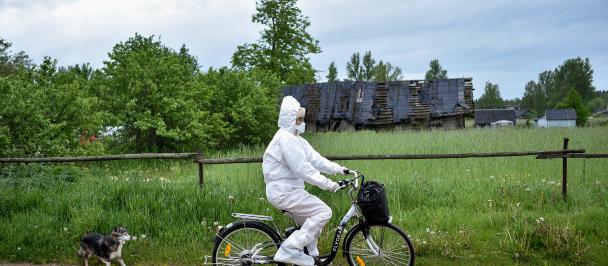Haoliang Xu delivers opening remarks at the launch of UNDP / DESA Publication - “What is a ‘Good Practice’ - A framework to analyze the quality of stakeholder engagement in implementation and follow-up of the 2030 Agenda”
Framework to analyze quality of stakeholder engagement for 2030 Agenda
January 26, 2021
Dear Colleagues, Excellencies,
I would like to join my dear colleague, Ms Spatolisano, in welcoming you to today’s event. As she has stressed, our societies are stronger when people can contribute to decisions that affect their lives. This is perhaps one of the strongest messages that the 2030 Agenda sends, both through its overall call for stakeholder engagement and through SDG 16 which includes key, enabling principles for stakeholder engagement.
UNDP’s latest Human Development Report, ‘The next frontier: Human development and the Anthropocene’, also confirms that dialogue in society is not only intrinsically a good idea but is instrumental for any country to face its challenges: The HDR 2020 argues that human development is not only about expanding people’s capabilities but also about agency and values. It shows that – and here I quote: “[S]upporting the agency and empowerment of disadvantaged populations — by respecting their human rights, increasing their access to resources and ensuring that they are represented and their voices are heard - can break the vicious cycle of planetary and social imbalances”.
In short, the HDR confirms that people’s ability to participate in decision-making and to hold government to account is essential for finding long-term solutions for the multiple crises we are facing - from climate change to the current pandemic.
UNDP has extensive experience in supporting national and local level dialogue processes to help stakeholders identify solutions and build consensus around complex societal issues. Empowering stakeholders and creating space to question the status quo, to challenge prevailing assumptions and to envision transformation is at the heart of bringing about the systemic change that the HDR calls attention to.
I see the framework we are launching today as an important tool in this effort. It was spearheaded by UNDP’s Oslo Governance Centre, together with UNDESA, and with financial support from the Government of Norway. I know many of you joining today have been involved in shaping it and we are very grateful for your support.
As you will see, the framework is simple and enables national actors to steer the process:
· It uses three key principles reflected in SDG 16 which are also the three main principles of a human-rights based approach – inclusion, participation and accountability – to analyse and strengthen the quality of stakeholder engagement practices;
· It is meant to be used by national actors themselves – governments, communities, businesses, civil society - and, ideally, together, to review or design the way they engage with each other. For example, in the development of a Voluntary National Review report on the country’s SDG progress or in the follow up of such a VNR and the implementation of the SDGs through national development planning processes.
· The framework also includes suggestions on how to deal with the current pandemic or similar crises. It emphasizes that even during a crisis, and perhaps even more so, it is essential to engage stakeholders and obtain people’s views - in order to respond and recover strategically and effectively.
Colleagues,
We are happy to have so many of you join today, including from government, civil society, the UN and academia! I wish you the best for what promises to be a very interesting discussion. After today’s launch, we warmly invite you to road-test the framework. We are keen to learn about your experiences, document them on our interactive platform - the SDG 16 Hub - and support you technically.
Thank you.

 Locations
Locations




